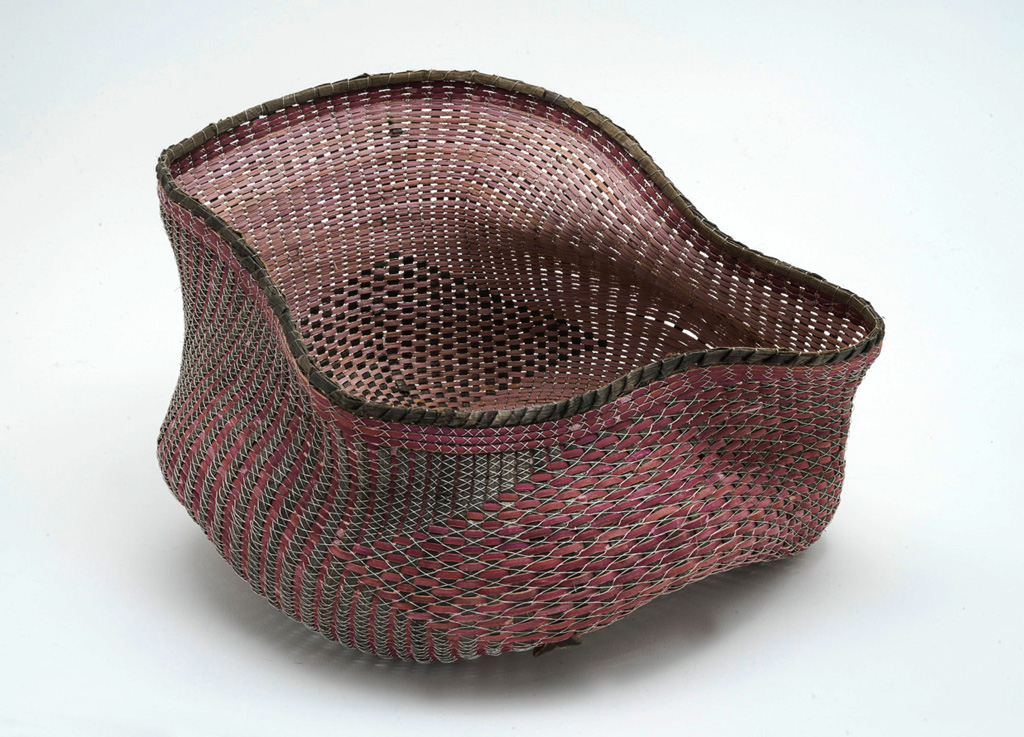Polly Adams Sutton
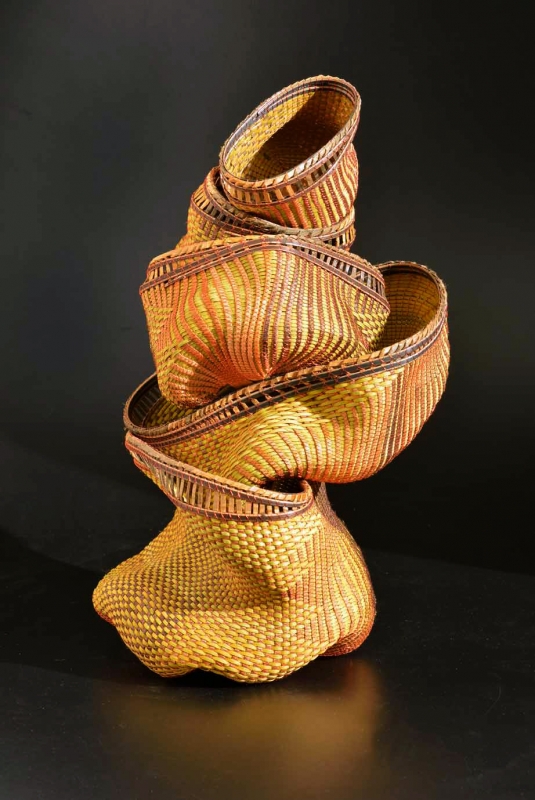
Polly Adams Sutton
Barros
Five cedar bark baskets, twined with wire, woven with cane
Various sizes
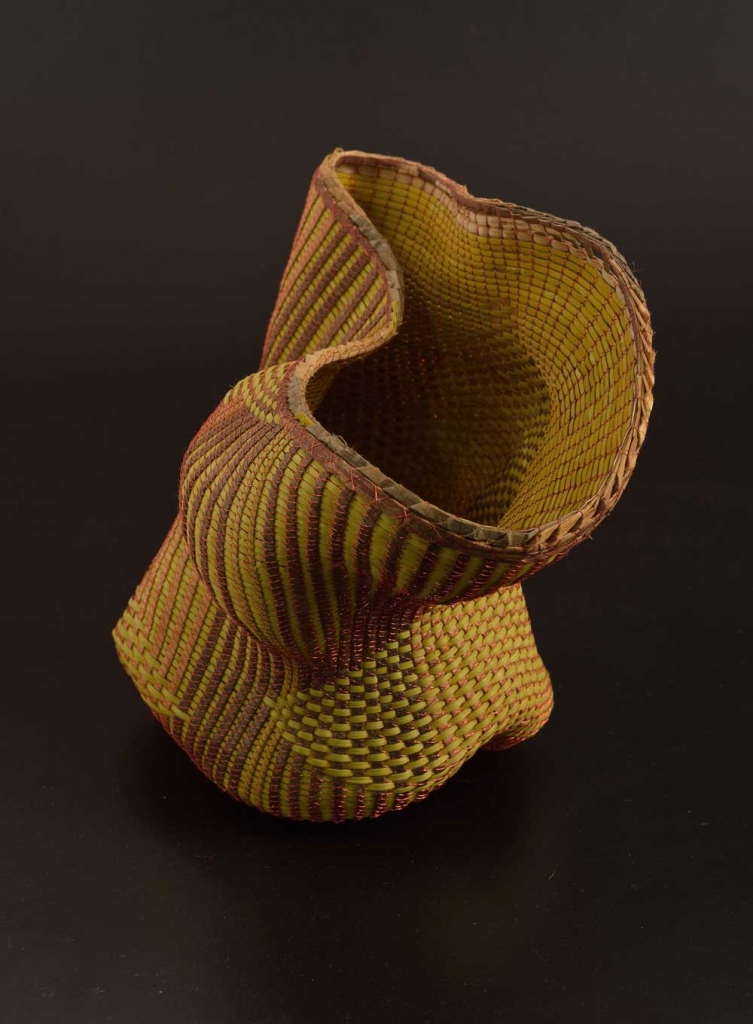
Polly Adams Sutton
Nebula
Cedar bark basket with mud-dyed cedar, twined with wire, woven with dyed binder cane
9.5” high x 10.5” at widest
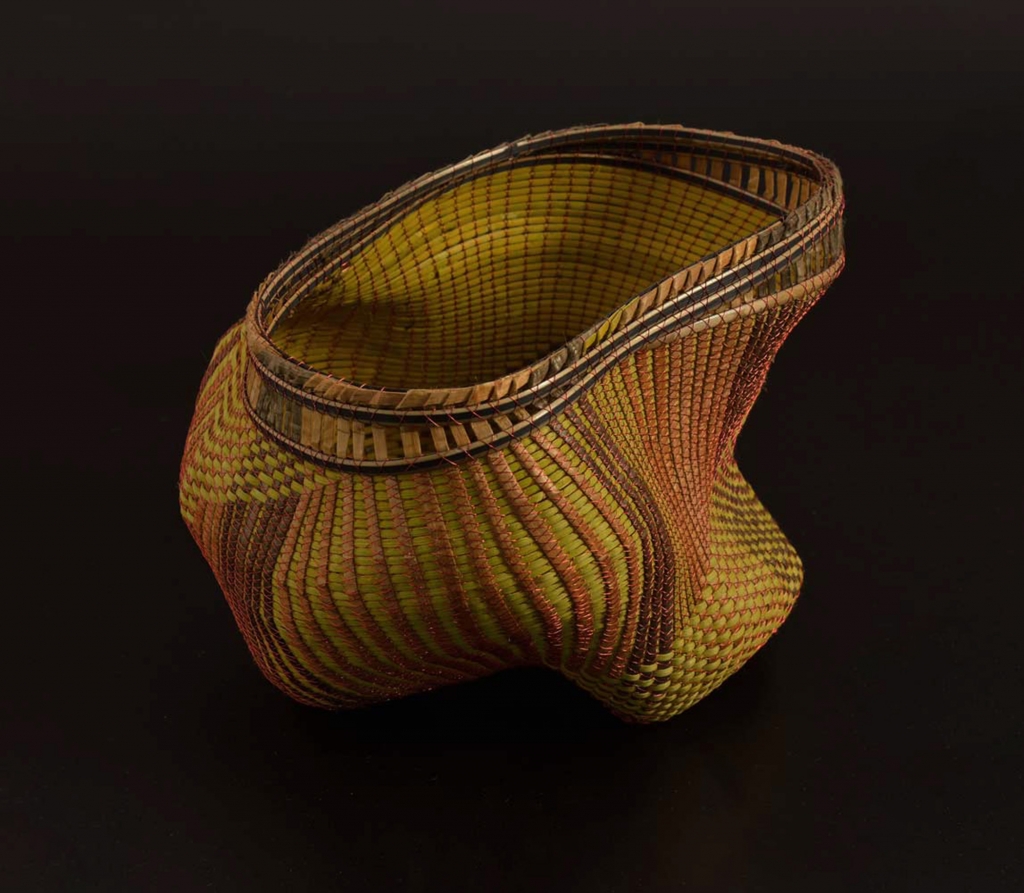
Polly Adams Sutton
Nebulosa
Cedar bark basket with mud-dyed cedar, twined with wire, woven with dyed binder cane
6.75” high x 9.75” at widest x 5.75” at narrowest
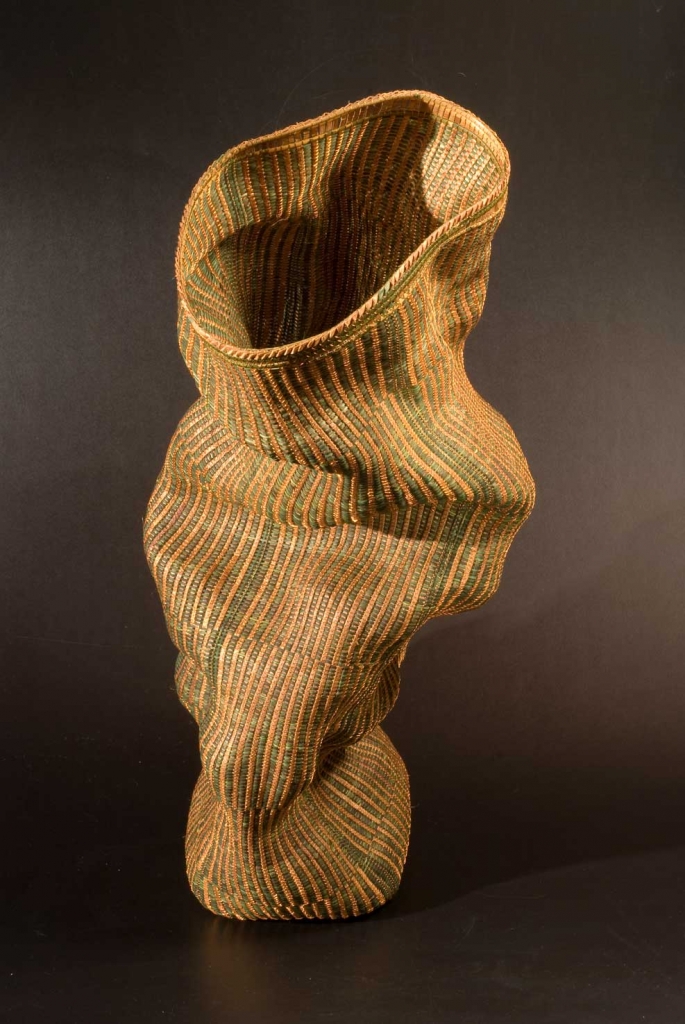
Polly Adams Sutton
Plicata
Cedar bark twined with wire, woven with variegated cane, cedar root border
35" x 13" x 12"

Polly Adams Sutton
Nebula
Cedar bark basket with mud-dyed cedar, twined with wire, woven with dyed binder cane

Polly Adams Sutton
Nebulosa
Cedar bark basket with mud-dyed cedar, twined with wire, woven with dyed binder cane

Polly Adams Sutton
Plicata
Cedar bark twined with wire, woven with variegated cane, cedar root border
- IMAGES:
- /

Polly Adams Sutton
Barros
Five cedar bark baskets, twined with wire, woven with cane
Various sizes

Polly Adams Sutton
Nebula
Cedar bark basket with mud-dyed cedar, twined with wire, woven with dyed binder cane
9.5” high x 10.5” at widest

Polly Adams Sutton
Nebulosa
Cedar bark basket with mud-dyed cedar, twined with wire, woven with dyed binder cane
6.75” high x 9.75” at widest x 5.75” at narrowest

Polly Adams Sutton
Plicata
Cedar bark twined with wire, woven with variegated cane, cedar root border
35" x 13" x 12"

Polly Adams Sutton
Nebula
Cedar bark basket with mud-dyed cedar, twined with wire, woven with dyed binder cane

Polly Adams Sutton
Nebulosa
Cedar bark basket with mud-dyed cedar, twined with wire, woven with dyed binder cane

Polly Adams Sutton
Plicata
Cedar bark twined with wire, woven with variegated cane, cedar root border
Statement
The work begins when I have located a logging source where, with permission, I can harvest inner bark from the Western Red cedar trees. The outer bark is split off in the woods and I bring home several coils of fresh cedar bark. After it dries and seasons, it is resoaked, split and cut for the appropriate piece. The ideal setting is when I can set the dried bark outside to be reconstituted in the rain. This is the perfect way to begin to weave.
There is no preconceived notion as to the purpose of my sculptural shapes, except perhaps, a quest for pleasing curvilinear forms. I cut lengths of cedar with either big or small in mind. Once the size of the base is determined and woven, the shape evolves as the work progresses. I keep an eye on this evolution and try to control it with the use of the tension in the material I am twining with, which is commonly wire. The cedar bark, when damp, has an impact on the shaping, as it is very pliable when soaked.
Selected Collections
- Arizona State University Art Museum, Tempe, AZ
- Edmonds Art Museum, Edmonds, WA
- Michigan State University Museum, East Lansing, MI
- Museum of Fine Arts, Boston, MA
- Racine Art Museum, Racine, WI
- Numerous private collections throughout the United States
